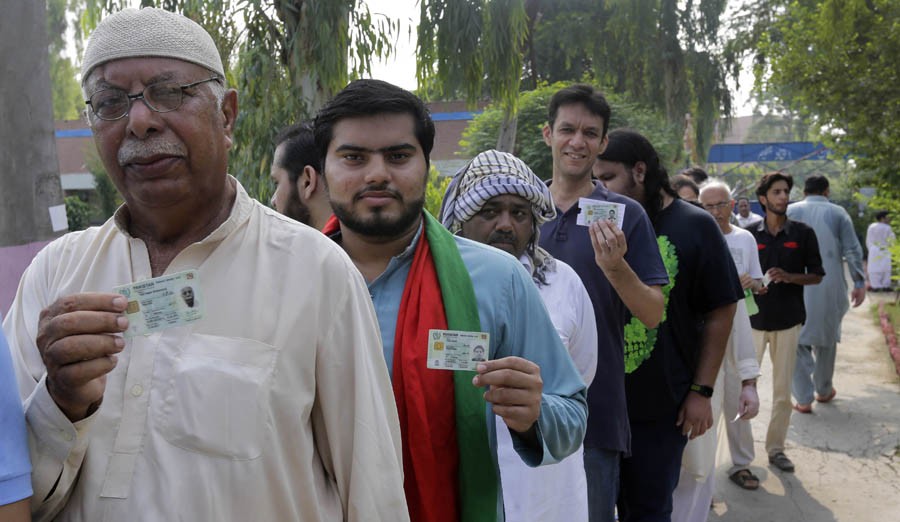

Democracy in Pakistan has often been messy and unpredictable, not that dictatorship has flared well in the absence of a proper functioning democratic setup, as it too has brought its equal share of horrors and ills to the country.
Even though democratic values and this form of governance is what the country needs, citizens’ lack of interest in actively participating in the process is largely due to the flaws in the democratic institutions, which for reasons unknown persists in every election without being addressed.
Unlike elsewhere in the world, Pakistan has a trend showing that a majority of the voters are now ambivalent about the virtues of democracy. A visit to a couple of polling stations in Lahore on Wednesday proved that these recent trends hold up.
Further supporting the trend is FAFEN’s preliminary observations of the voter turnout to be slightly above 50 per cent, indicating that people eligible to cast a vote have once again failed as responsible citizens. The problem, however, may not be individual failure so much as our contemporary conception of how democratic citizenship is supposed to work. Nothing puts that concept into clearer perspective than the multiple changes in the act of voting over the past elections.
For some odd reason I found Lahore to be quiet this time around; a city that ripples with an ageless grace that belies history, dating back no further than the 1st century AD. In the stormy history of democracy, the city had played a pivotal role as a site of Public Assembly, sanctuary for the persecuted, shaper of political language and an object of wonder. It was once thought that citizens of Lahore like their fellow countrymen of Karachi were the most politically aware from the rest.
Might the city today be functioning in similar ways, as drivers of bold new political ideals and practices uniquely suited to the 21st century? Does the city still hold the key to our democratic future? Many still hope that the denizens of Lahore might once again prove the age old concept to be true.
But the blaring party anthems and in-your-face politicking within the city streets had another story. In my view, the city once famous for its appetite of hearing opposing views with apt attention has now been polarised, lines have been drawn, and unfortunately these lines have been drawn on political ideologies. Whole neighbourhoods turning against each other indicate that our current political culture is languishing under the weight of historical ignorance.
In the current scenario, we need a new concept of citizenship, one that asks something from us but is not burdened with the impossible expectations of bringing about a change with your vote. A citizenship where a person experiences democracy not only for one day but throughout the tenure of the elected government.
An alternate response would be to build a society that makes more of situations that build citizenship with an informed socio political outlook. In an environment that supports worthwhile citizenship activity, where there is intrinsic reward for doing the right thing.
This must change for Lahore to gain the political maturity it had attained over a period of many centuries. Effective political engagement demands a fundamental understanding of history. Proper understanding means far more than memorising a list of unrelated facts. Nor is history merely a carefully-edited weapon for deployment in defense of some narrow perspective on a controversial or pet issue.